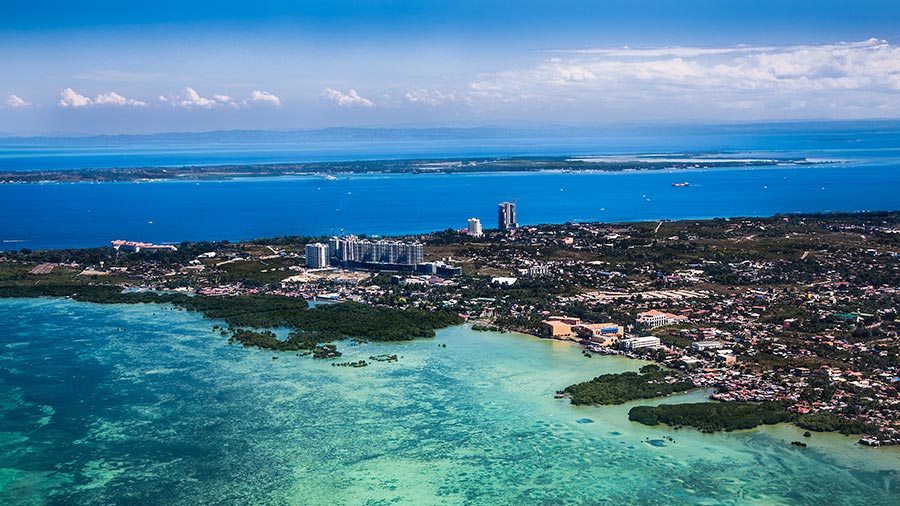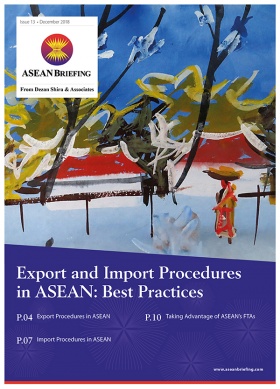The Asia Reassurance Initiative Act and ASEAN
On December 31, 2018, US President Donald Trump signed the “Asia Reassurance Initiative Act” or ARIA into law following its approval by the US Senate on December 19, 2018. The ARIA’s main aim is “to develop a long-term strategic vision and a comprehensive, multifaceted, and principled United States policy for the Indo-Pacific region”. More specifically, the enacted law is focused on the promotion of American interests in the Indo-Pacific region in terms of defense and security partnerships.
The ARIA is aimed at reinforcing “America’s role in Asia as the region’s historic superpower” and at maintaining strategic partnerships with its allies and partners. Thus, the US-ASEAN strategic partnership is one of the highlights of the said law. The so-called quasi alliance comprises of the US and six of the ten ASEAN states, including Brunei, Indonesia, Malaysia, the Philippines, Singapore and Thailand. Other ASEAN member states are covered by the associated Lower Mekong Initiative which includes Cambodia, Laos, Myanmar and Vietnam.
Defense and Security
As per ARIA, US security interests primarily involve building new counterterrorism partnership programs in Southeast Asia and increasing maritime domain awareness both in South Asia and Southeast Asia.
ARIA promotes a joint Indo-Pacific diplomatic strategy in Asian waters through joint maritime exercises in the East China Sea and the South China Sea. It emphasizes on a rules-based international system which benefits all countries involved.ARIA further stresses on the US-backed international system which is, as the US claims, “being challenged with increasingly coercive behavior including China’s illegal construction and militarization of artificial features in the South China Sea”. In this regard, the US position on the maritime disputes involving China and some of the ASEAN states remain unchanged.
According to ARIA, the US reaffirms its commitment to treaty alliances with the Philippines and Thailand as per the Mutual Defense Treaty and the Agreement Respecting Military Assistance respectively.
Meanwhile, China has recently protested the signing of ARIA and called upon the US to “properly handle the Taiwan issue”. Parts of the ARIA enforces the transfer or sale of arms to Taiwan, which according to China, violates the latter’s One-China policy and interferes in its internal affairs.
Strategic and Economic Partnership
The significance of US relations with ASEAN encompasses economy and trade. ASEAN’s economy has grown by 66 percent between 2006 and 2015. The value of US-ASEAN total bilateral trade increased by 78 percent since 2004. ARIA states that trading with ASEAN member states will continue to be of vital importance for the growth of the US economy.
ARIA stresses on the continuation of the US-ASEAN Economic Partnership by carrying essout a comprehensive economic engagement framework through their respective trade representatives.
Another priority area in the oversight and development of US strategies includes “a comprehensive, integrated and multilayer Indo-Pacific energy strategy” in order to augment US exports of energy to the region.
Lower Mekong Initiative
The Lower Mekong Initiative (LMI) was established in 2009 as a multinational effort initiated by the US and non-security alliance states such as Cambodia, Laos, Thailand and Vietnam. Myanmar joined LMI in July 2012.
The US interest in advancing the LMI is grounded in the “shared resources” of the countries in the Mekong River basin. As a Dialogue Partner, the US promotes regional integration and cooperation among these countries by assisting in several developmental projects.
ARIA reiterates increased US engagement in this region by intensifying assistance in various areas including environmental challenges and resilience; preservation of biodiversity and access to safe drinking water; English training and internet connectivity in rural communities; and global health chellenges such as HIV/AIDS, malaria and tuberculosis.
Furthermore, a mandatory annual report on the regional engagement through the LMI is required by ARIA, along with a report on terrorism in Southeast Asia.
Future Impact
Emphasis on the Importance of American Values
ARIA allocates US$25 million to the promotion of American democracy and strengthening of civil society, human rights, rule of law, transparency and accountability in the Indo-Pacific region.
The US supports the Young Southeast Asian Leaders Initiative, ASEAN Youth Volunteers Program and other people-to-people exchange programs to achieve this goal.
Fund Appropriation
With regards to US funding, ARIA directs that only Congress can appropriate funding which means that the President shall not have any power to do so otherwise. US$150,000,000 will be appropriated to the Indo-Pacific region for each fiscal year from 2019-2023.
ARIA stipulates that financial assistance will be subjected to a budget cut in countries such as Cambodia, Myanmar and US’s closest security ally in ASEAN, the Philippines, due to human rights issues. It postulates that financial funding may not be available in full to the countries mentioned above. For example, the US is opposed to the use of its funds in the Philippines’ war on drugs. It may be recounted that Philippine President Duterte shrugged this off and even threatened to reject any financial aid from the United States.
The US demand on fund appropriation may have a political impact on US relations with some of the ASEAN member states, but it can also be geared toward a more effective hedging strategy amid the US-China rivalry.
Economy and Trade
ARIA’s focus on energy strategy and increased economic partnerships will likely make cooperation with ASEAN imperative for the US.
The proposed energy initiatives by the US are aimed at boosting the US-ASEAN Energy Cooperation Work Plan under the ASEAN Plan of Action on Energy Cooperation (APAEC) 2016-2025. ASEAN’s high reliance on LNG also paves the way for the US to extend its capabilities and facilities, which in turn is expected to reap economic benefits. On the other hand, ARIA is expected to further enhance the value to the US-ASEAN Connect established during the Obama administration.The US sees the ARIA as an opportunity to come to a new trade deal with Asia after Trump’s withdrawal from the Trans-Pacific Partnership (TPP) initiated by his predecessor. ARIA is believed to embody the US’ consolidation of power and ASEAN’s dependency on the US for the strengthening of regional integration in the region.
About Us
ASEAN Briefing is produced by Dezan Shira & Associates. The firm assists foreign investors throughout Asia from offices across the world, including in Singapore, Hanoi, Ho Chi Minh City, and Jakarta. Readers may write asia@dezshira.com for more support on doing business in ASEAN.
- Previous Article Budget de la Malaisie pour 2019 : principales caractéristiques
- Next Article The Philippines’ Federal Shift and What it Means for Business









